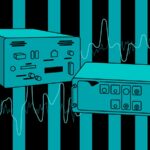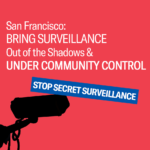
Some of the things Oakland Privacy had a hand in in 2023:
- California Fusion Center Research Project initiated by Oakland Privacy
- Bad facial recognition state legislation killed.
- ALPR regulation bill introduced in CA legislation and sponsored by Oakland Privacy..
- Oakland Privacy’s letters of support and objection are quoted extensively by legislative analysts for a number of bills re: privacy, surveillance, policing and transparency.
- Oakland will replace its aging, cruiser-mounted (but currently disabled) ALPRs with lots of new Flock fixed-location ALPRS, BUT will reduce to retention time to 30 days from its current six months to two years.
- Newsom signs 20 bills supported by Oakland Privacy in the areas of privacy, surveillance, and governmental transparency and vetos a bill (at our request) to expand the focus areas for California’s fusion centers.
- City of Pasadena tables a proposed cell site simulator purchase after Oakland Privacy warns them they are violating state law.
- Oakland Privacy reveals that Kaiser Permanente is using Flock cameras in their medical center parking lots across the State .
- ALCO Board of Supervisors agrees to end the use of scattershot munitions in the mental health housing unit at Santa Rita Jail. ALCO also agrees to re-establish drone video retention to 60 days unless entered into evidence, remove boilerplate authorization language inserted into the policy in 2021, and to add to the policy a blanket prohibition on the weaponization of drones.



